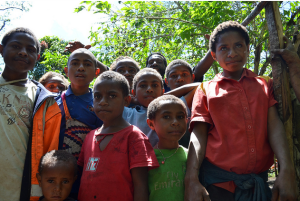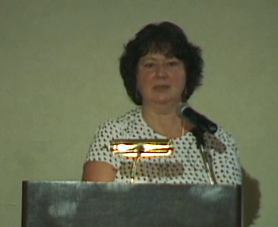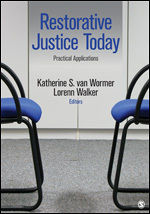News & Announcements
 Photo of someone pulling an Andon Cord from NYTimes blog
Photo of someone pulling an Andon Cord from NYTimes blog
Jeffrey Farr, a 2012 IIRP graduate and English teacher at an alternative school using restorative practices, sent me a link to a piece titled "Case In Point: Avoiding Martial Arts Moves by Pulling the Andon Cord." In the subject heading of his email Farr wrote: "RP [restorative practices] by any other name would still be RP . . . " I like this idea of finding relevant connections and identifying practices that could be considered restorative wherever they may be found.
The piece talks about a mother using a sort of impromptu conference. She asks her sons, "What happened?" and then engages them in a process of what can be done to make things right.
I thought the piece was particularly interesting because it uses a metaphor from industry – "pulling the Andon cord," a procedure originating in Japan where factory line workers stop the production line to resolve a problem. The piece's authors, Elliott Weiss and Rebecca Goldberg, also reference "Continuous Improvement (CI)," an engineering and business term I recently heard about at IIRP's World Conference during a talk given by John Graham Macdonald of Hull, England titled “Restoring Your Bottom Line: Using RP in Management.” Macdonald said that CI is itself a restorative practice, because it's about engaging the whole company in continuing to improve their methods. At the same time, he believed that restorative practices as a whole could help businesses overcome institutional resistance to culture change, which CI does not itself address.
 photo from the highlands of Papua New Guinea by eGuide Travel at Flickr Creative Commons
photo from the highlands of Papua New Guinea by eGuide Travel at Flickr Creative Commons
A piece in the magazine Science titled “Turning from War to Peace in Papua New Guinea” (Vol. 337, September 28, 2012) by Elizabeth Culotta describes a recent anthropological paper co-authored by Polly Wiessner of the University of Salt Lake City, who has worked with and studied the Enga people of Papua New Guinea for 25 years, and Nitze Pupu, a blind Enga law school graduate. Wiessner and Pupu conducted more than 300 interviews to understand how the Enga have reduced violence, which was always present but shot up precipitously with the introduction of gun use in the 1990s.
Culotta writes: “The interviews highlight several factors that helped break the spiral of violence. First, people were tired and impoverished by war and felt that the damage wrought by violence was not worth the potential benefits. Second, once men had eschewed violence, Christianity offered them institutional support for their stance. Third, the brand of justice practiced in the village courts restored good relations among clans.”
 This week's video features Vidia Negrea, director of Community Service Foundation of Hungary, an IIRP international affiliate, delivery her full plenary at IIRP's 15th World Conference on August 2, 2012. The title of her talk was "Family Group Conferencing/Family Group Decision Making as a Transition from Prison in Hungary." Negrea begins by discussing her journey to introduce restorative practices in schools, social work and other areas, and then focuses on her work in prisons and how she has used restorative processes to help prisoners successfully return home after lengthy prison terms.
This week's video features Vidia Negrea, director of Community Service Foundation of Hungary, an IIRP international affiliate, delivery her full plenary at IIRP's 15th World Conference on August 2, 2012. The title of her talk was "Family Group Conferencing/Family Group Decision Making as a Transition from Prison in Hungary." Negrea begins by discussing her journey to introduce restorative practices in schools, social work and other areas, and then focuses on her work in prisons and how she has used restorative processes to help prisoners successfully return home after lengthy prison terms.
The 35-minute video can be viewed here.
A paper titled "Restorative Practices in Hungary: An Ex-prisoner Is Reintegrated into the Community" by Negrea offers a detailed case-study.
 Power U Center for Social Change is a nonprofit, grassroots organization based in Miami, Florida that, according to its web site, is "FIGHTING for our land, our people, our community; ORGANIZING for justice in our schools and communities; SUPPORTING the struggle of social, environmental, and economic justice." A key program area involves empowering youth to advocate for restorative justice in schools. Power U writes:
Power U Center for Social Change is a nonprofit, grassroots organization based in Miami, Florida that, according to its web site, is "FIGHTING for our land, our people, our community; ORGANIZING for justice in our schools and communities; SUPPORTING the struggle of social, environmental, and economic justice." A key program area involves empowering youth to advocate for restorative justice in schools. Power U writes:
In Miami, the majority of students arrested each year are Black, even though they only make up 27% of the student population. [An] unjustifiably broad and grossly unjust interpretation of zero tolerance policy on violence in schools has disrupted and interrupted education for so many students, and sent so many more on what is termed the "schoolhouse to jailhouse track"?, that approximately half of Miami's high school students fail to graduate.
Opinion: The mounting cost of violence - Rep. Mike Honda - POLITICO.com.
From the Wisconsin shooting to the war in Afghanistan, we all know that violence costs our society, whether it’s domestic violence, a homicide, a war, or something as simple as a security system. We also know that there are direct and indirect costs associated with violence, whether it’s the immediate medical, court and police costs that stem from violent crime, or the long-term loss of economic productivity that stems from the loss of an American worker’s life.
 Amy Merickel, a mother of a San Francisco school child, discovers the power of restorative practices when she volunteers as a recess monitor. She describes her experience in this podcast from KQED radio.
Amy Merickel, a mother of a San Francisco school child, discovers the power of restorative practices when she volunteers as a recess monitor. She describes her experience in this podcast from KQED radio.
I like where she says:
"It's [restorative practices] a framework for community building and conflict resolution, and is predicated on high expectations with high support to meet them. In education, Restorative Practices emphasizes building trusting relationships and learning from conflict. It helps put the kibosh on bullying."
The full text of her piece can be found here.
IIRP's involvement with San Francisco schools' implementation of restorative practices and other news about the impact RP is having on schools and in the city can be found here.
 A chapter about restorative practices in higher education by IIRP President Ted Wachtel and University of Vermont director of residential life Stacey Miller has been published in a new book called Restorative Justice Today: Practical Applications, edited by Katherine S. van Wormer (University of Northern Iowa) and Lorenn Walker (University of Hawaii Honolulu Community College).
A chapter about restorative practices in higher education by IIRP President Ted Wachtel and University of Vermont director of residential life Stacey Miller has been published in a new book called Restorative Justice Today: Practical Applications, edited by Katherine S. van Wormer (University of Northern Iowa) and Lorenn Walker (University of Hawaii Honolulu Community College).
The book also includes a section on traditional North American native restorative justice philosophy and practice by Laura Mirsky, IIRP assistant director of communications and technology.
Sunday videos continue with this piece from the Dignity in Schools Campaign to mark their Annual National Week of Action on School Pushout going on now – September 29 to October 6, 2012.
To find out how to get involved in the Week of Action, click here.
Christian Science Monitor has published an opinion piece by IIRP President Ted Wachtel about the growing trend for schools to move away from failed zero tolerance policies. He also discusses the role restorative can play in this transition. The piece begins:
 The ACSA (Association for Student Conduct Administration), which serves higher education student conduct adminstrators, is offering a webinar titled "Introduction to Restorative Justice" on October 24, 2012 from 2:00 to 3:30 PM Eastern Time. John Bailie, IIRP director of professional development, will be one of three speakers. In addition to the general topic, Bailie will specifically discuss IIRP's Building Campus Community program. In addition to responding to harm, this program provides a framework for residential life staff to proactively build community in residence halls.
The ACSA (Association for Student Conduct Administration), which serves higher education student conduct adminstrators, is offering a webinar titled "Introduction to Restorative Justice" on October 24, 2012 from 2:00 to 3:30 PM Eastern Time. John Bailie, IIRP director of professional development, will be one of three speakers. In addition to the general topic, Bailie will specifically discuss IIRP's Building Campus Community program. In addition to responding to harm, this program provides a framework for residential life staff to proactively build community in residence halls.
To learn more and register for the webinar, click here.
